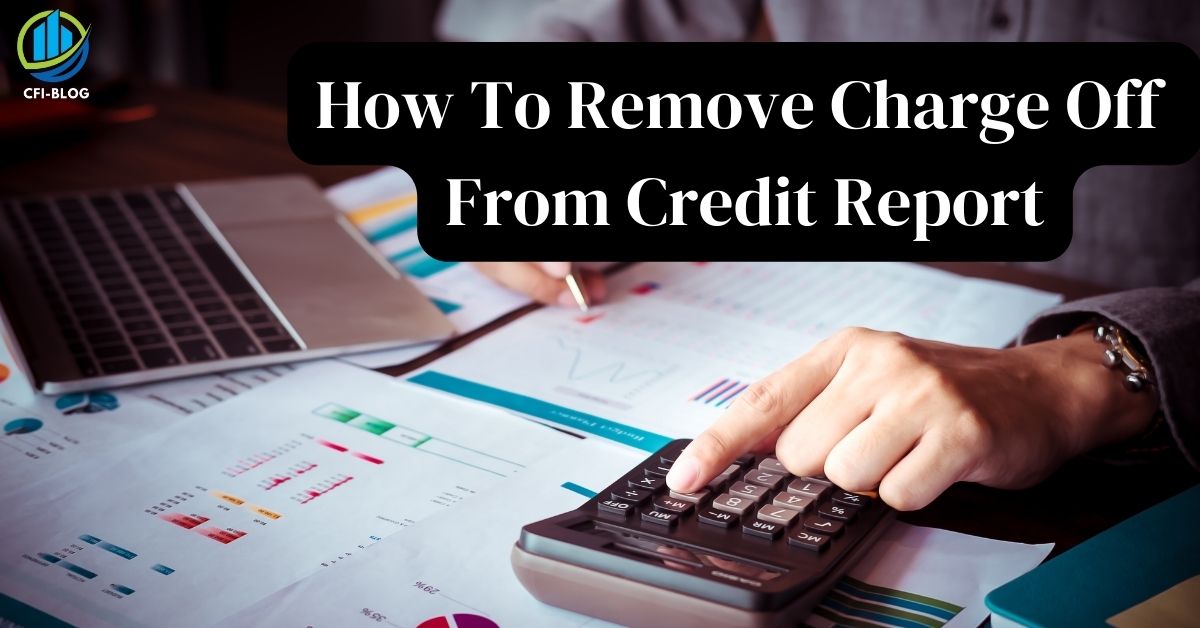You might not realize it, but credit score holds a lot of importance. Whether you are applying for a credit card, loan, or bank account, you will need to present your credit score. You will only qualify for any of these if you have a good credit score, otherwise, your application would not get approval.
Do you know what affects your credit score the most? A charge off on credit report. A charge-off is basically a declaration by the lender, that you are not repaying your debt so he is giving up on you and declaring you as a bad borrower, giving your credit score and credit report a permanent dent. Once a charge-off comes on your credit report, it becomes very difficult to qualify for a credit card or loan.
In this article, we are going to tell you about charge-off on a credit report, how it affects your credit score, how to remove a charge-off from your credit report, and how long a charge-off stays on your credit report. We are also going to tell you about the laws and taxes associated with the charge-off. So now let’s get deeper into this.
What is a Charge Off?
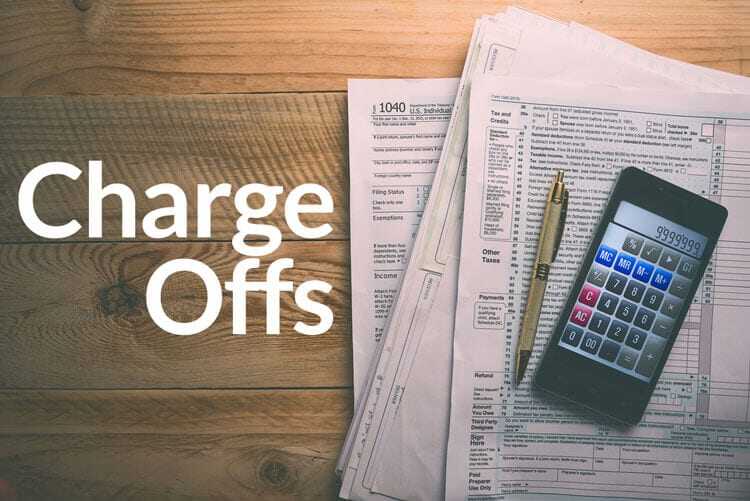
When you get a loan, you also need to repay it on time. The repayment can be in installments or in the form of a one-time payment, depending on your loan type. In case you do not repay the debt on time, the lender can declare your account as charged off.
The lender does not declare your account as charged off just after the first missed payment. They usually wait for 120 to 180 days, send you multiple notices for repayment, and even after all this, if you do not pay your loan installment, then the borrower declares you as charged off, which means that now he has given up on your account.
Once your account is declared as charged off, you are considered delinquent of payments, and it is mentioned on your credit score. After being declared delinquent, it becomes very difficult for you to get a new loan or credit card. You might not even qualify for a credit limit raise.
The main issue is, a charge-off leads to a major fall in your credit score, and after this, it can be really difficult for you to improve your credit score, until you get rid of the charge-off. A charge-off is only going to make your financial journey difficult, so it is better to pay off your debts on time.
How Does a Charge Off Affect Your Credit Score?
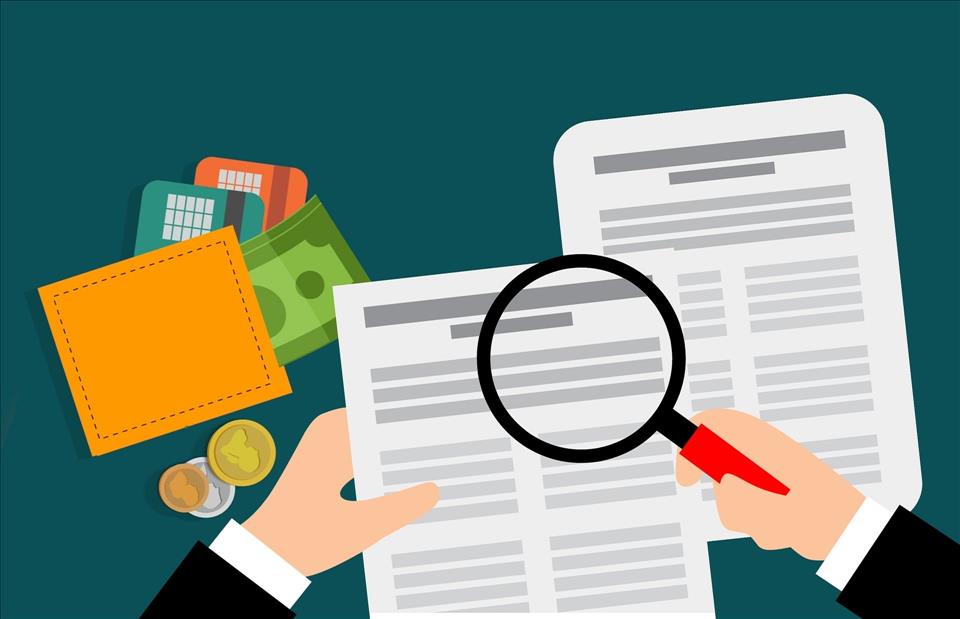
In simple words, a charge-off simply ruins your chances of getting a loan, credit card, or even a credit limit increase. Once a charge-off comes on your credit report, it leads to a major credit score fall, depending on your debt amount, you can lose up to 300 to 400 or your credit score due you a charge-off.
The worst part is, even if you repay the debt, the charge-off mark is going to stay on your credit report. It is going to affect your credit score and your chances to qualify for a loan or credit card, until the charge off falls off your credit report.
How Long Does a Charge Off Stays on Your Credit Report?
Are you wondering how long does a charge off stay on your credit report? Well, a charge-off stays on your credit report for 7 years. As per the Fair Credit Reporting Act (FCRA), if you do not take any actions to remove the charge off from your credit report, it will automatically be removed after 7 years of being on your credit report.
If you do not want it to stay on your credit report for such a long time, you can negotiate with your lender and ask him to remove the charge off on credit report in return for some fee or payment.
Is it Possible to Get Rid of the Charge-off from the Credit Report?
Here is another good news for you, you can actually get rid of the charge-off on your credit report and there are two major ways to do it.
- Wait for 7 years until it is removed automatically as per the Fair Credit Reporting Act (FCRA).
- Negotiate with your lender and request for Pay for Delete.
If you go for the first way then you will need to do absolutely nothing. You will just need to wait for 7 days and after exactly 7 years of charge off on credit report, it will be removed automatically.
But in case you do not want to wait for 7 long years then you can go to your lender and ask them to negotiate. After repaying the debt, you can ask them to charge some extra money as a fee to report the charge off permanently from your credit report.
What if the Charge Off is Inaccurate?
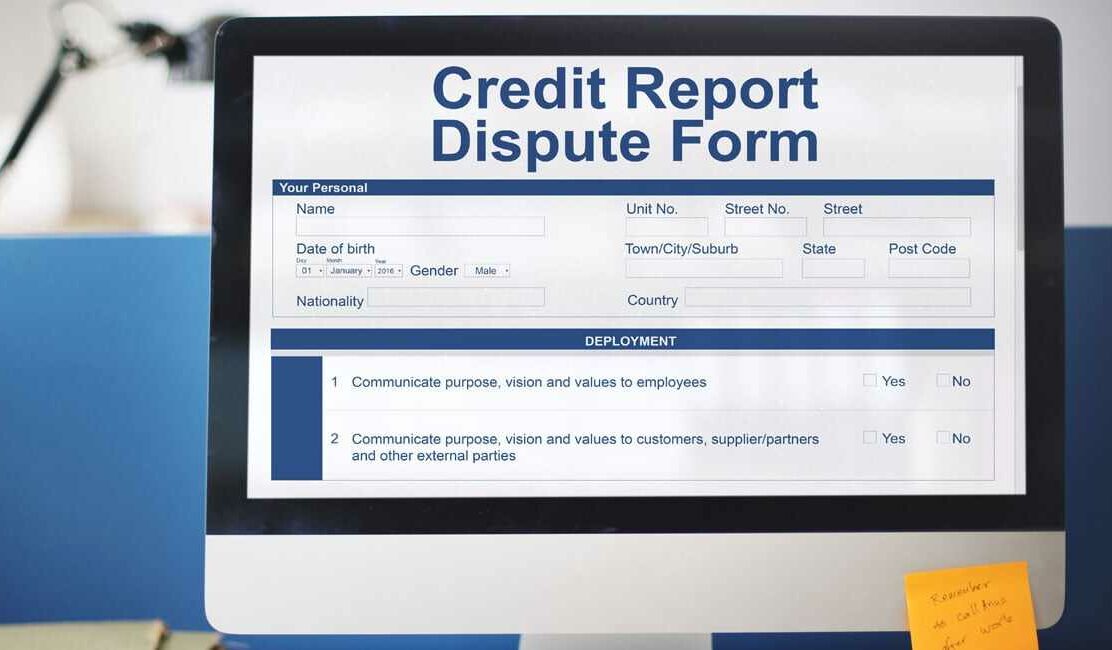
If you strongly believe that the charge-off on your credit report is inaccurate and you do not have a debt or you have not missed any loan installments then you can file a dispute with the credit bureau. The Fair Credit Reporting Act (FCRA) has given you the right to file a dispute against the credit bureau or the creditor if you have a concrete reason to believe that your credit report is wrong. For this purpose, you can also take the help of a credit repair company.
How to Remove Charge Off From Credit Report? (Steps)
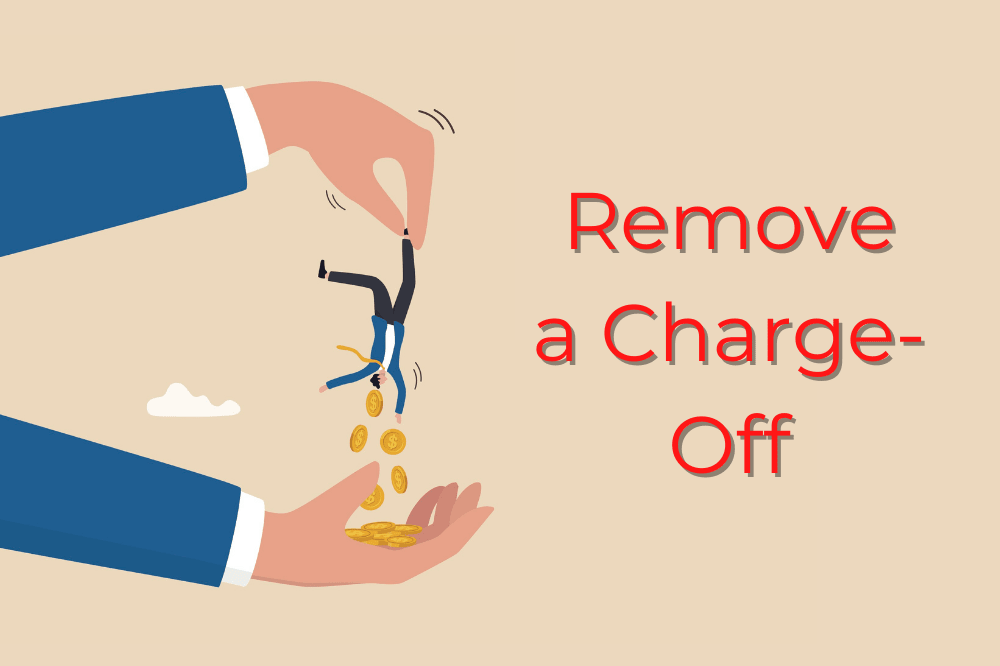
Now that you know how long does a charge off stay on your credit report, in this section, we are going to tell you how to remove the charge-off from your credit report. You can follow the step-by-step procedure in order to get rid of the charge-off before 7 years.
1. Find Out Who Owns the Debt
If you want to remove the charge-off on a credit report, first of all, you will need to find out who is your current creditor. After being charged off, your original lender might have sold your account to any third party like a debt collection company or someone else. You can ask your original lender about who owns your debt.
2. Look Out for Debt Details
In order to negotiate your loan, you must know all the details about your loan. Look for the previous documents, and see how much you have already paid and how much is left, how many installments you have missed, etc. You can also ask the original lender to give you all the details regarding your loan and account sale.
3. Pitch Your Settlement Deal
Now that you have all the details regarding the loan, you can go to your current creditor and ask them if they are willing to negotiate on your debt. If your debt amount is more then the debt company would probably agree to settle the debt. After this, you can pitch your deal, and ask the creditor what they want. After discussion, you can come to mutual terms.
4. Request for a Pay for Delete
After negotiating the loan amount, you can also ask the creditor to delete the charge off from your credit report in return for some fees. For deleting the charge-off, the creditor might ask you to pay a high fee, try to negotiate the fee as well with the creditor.
5. Get the Written Agreement
As soon as you and the creditor agree on mutual terms, ask them to make a written agreement containing all the points of the settlement. So, the creditor cannot flip later. Now, you can pay the remaining debt as per the terms and conditions of the new agreement and as soon as you repay the debt, the credit will remove the charge-off from your credit report.
See, the process of how to remove the charge-off from a credit report is going to be difficult, but you will have to talk and negotiate to get the result.
Do You Need to Repay the Debt After a Charge Off?
Well, yes. You just cannot ditch a loan. If you have taken a loan, later or sooner, you will have to repay it. If you do not pay the loan to the lender, after 120 to 180 days of the first missed payment, they will declare your account charged off as bad debt. After this, they might even sell your account to some debt collection company and then you will have to pay the loan amount along with the interest to the debt collection company.
But we have good news for you. Most states have a “Statute of limitations”. According to this law, after a certain period of time, the lender cannot force you to repay the debt or file a lawsuit against you in order to recover the debt. In most states, the status of limitations has a period of 3 to 6 years.
How to Rebuild Your Credit Score After a Charge-Off?
A charge off on your credit report can harm your credit score and credit rating very badly. While your debt is still pending, it can be really difficult for you to rebuild your credit score. If you are still delinquent, try to pay all the other debts and bills on time, so that your credit score does not decrease any further.
To keep a track of your credit score, you can check your credit score on free credit report sites. Your credit score also depends on how long a charge stays on your credit report.
Whether Removing the Charge Off Improves Your Credit Score?
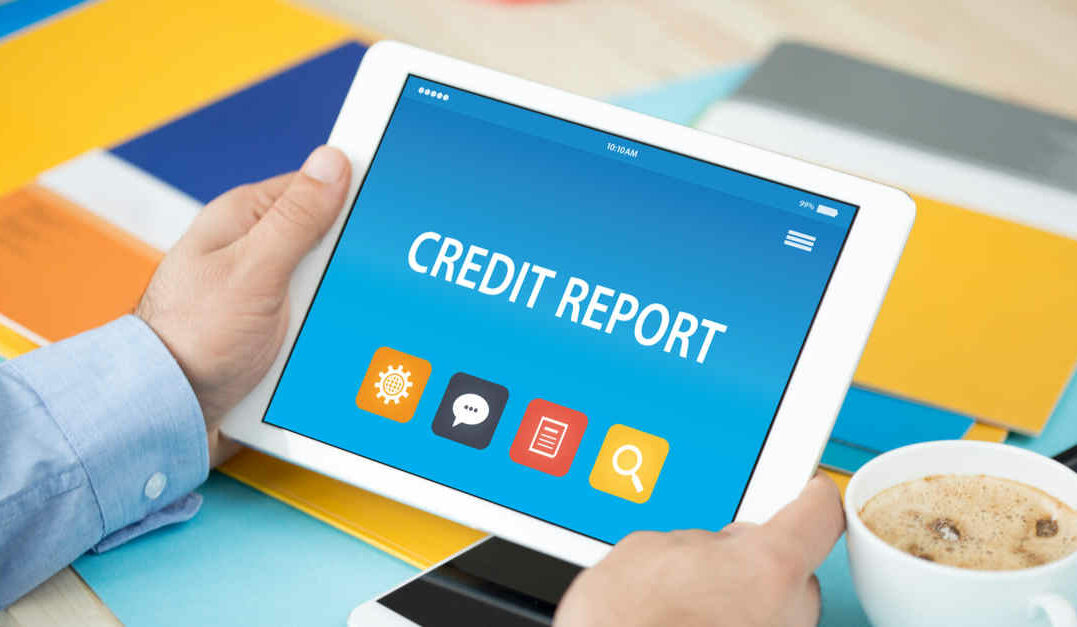
Well, removing the charge off from your credit report is not going to improve your credit score overnight. Getting rid of the charge-off is obviously going to make things better. As soon as the charge off on credit report is removed from your credit report and you start paying other loans and bills on time, your credit score will start improving gradually. If you use your credit card and other loans wisely, you will be able to boost your credit score.
Do You Need to Pay Taxes on a Charge-Off Removal?
It depends on the way by which the charge-off is removed from your credit report. If you waited 7 years and the charge-off is removed as per the Fair Credit Reporting Act (FCRA) then you will not need to pay any taxes on charge-off removal.
But if you are successful in negotiating the debt with the creditor and the creditor agrees to delete the charge-off on the credit report then you will have to pay the tax on the charge-off removal.
Whether Debt Management Program or Credit Repair Company is a Good Option to Remove ChargeOff?
Before understanding whether debt management programs and credit repair companies are going to help you in getting rid of the charge-off, let us first understand what they are.
1. Debt Management Program
A debt management program is generally offered by finance companies or non-profitable organizations, where an individual finance expert or a team of finance experts help you to plan your finance. They help you to decide how you can repay the loan as well as manage your expenses with the current income that you have. This service can be both paid and unpaid.
2. Credit Repair Company
As the name suggests, this company helps you to repair your credit score. They offer you programs to boost your credit score. If you believe that some entry in your credit report is wrong then they also help you to dispute your credit report. They communicate with the credit bureaus regarding the credit report error on your behalf.
Now the main question arises, whether debt management programs and credit repair companies are going to be helpful. See, the thing is, they are going to charge you some fee for their services and they are not going to give you a point that you cannot with your creditor. So we would recommend you talk to the creditor directly.
Also, there are many fraud credit repair companies in the market which charge an enormous amount of money and do not offer the services that they claim. Instead, you can use this money to pay for the debt. But if you do not have time and you have a high-earning job then you can go for debt management programs or credit repair companies.
Do I Really Need to Remove Charge Off on Credit Report?
Yes, you should try to remove the charge-off from your credit score. If you have a charge off on your credit report, then your credit score will stop increasing and you will not qualify for any other loan or credit card. The charge automatically falls off after 7 years, but it is better to pay your loan before that time and negotiate with your creditor in order to remove the charge-off.
If you successfully remove the charge-off from your credit report, you will be able to improve your credit score in a little time, otherwise, you will have to wait for 7 long years. Hence, we would recommend you negotiate with your current creditor and request a pay-for delete to get rid of the charge-off. We hope we were able to answer all your queries related to removing the charge-off on your credit report, if you have any other queries, please let us know in the comments section.
Frequently Asked Questions (FAQs)
Q1. Can you remove a charge-off without paying?
If you want to remove a charge-off from your credit report without paying then you will have to wait for 7 years. Because once a charge-off comes to your credit report, it is going to stay there for 7 years, even if you pay off the debt early. You will have to request your credit to pay for deletion if you want to remove the charge off before 7 years.
Q2. Do charge-offs fall off after 7 years?
Yes. According to the Fair Credit Reporting Act (FCRA), after 7 years, the charge off falls off automatically which means that it is deleted from your credit report. So yes, if you are wondering how long a charge-off stays on your credit report, it stays for 7 complete years until you try to get rid of it by negotiating with the creditor.
Q3. Will my credit score go up if a charge-off is removed?
Yes, your credit score will go up if the charge-off on your credit report is removed from your credit score. But this would not happen overnight. You will have to pay the bills and loans on time and gradually, your credit score will come up.
Q4. How to remove the charge-off from the credit report?
If you want to remove the charge-off the credit report then you have 2 options. You can either wait for 7 years until it automatically falls off as per the law, or you can negotiate with your creditor to remove the charge-off on the credit report in return for some fees.
It is better to talk to your creditor and ask them to remove the charge-off, otherwise, your credit score will suffer for 7 years and you will not be able to get any loan, credit card, or even a credit limit increase.
Author Profile
- Elizabeth Jones is one of our editorial team’s leading authors on credit card offers, services & more. With over two decades of experience in the consumer credit industry and as a nationally recognized credit expert, Elizabeth provides in-depth analysis of both traditional & alternative forms of credit. Elizabeth regularly appears on many major media outlets including NBC Nightly News, Fox Business Network, CNBC & Yahoo! Finance. She is also a frequent contributor to Forbes Magazine. As a highly appreciated author for our exclusive Editorial Team, Elizabeth strives to provide readers with a trustworthy advice on how to manage their credit accounts while staying informed on the latest offers in the marketplace.
Latest entries
 BlogSeptember 26, 2023How to Block Payments on Cash App: A Comprehensive Guide
BlogSeptember 26, 2023How to Block Payments on Cash App: A Comprehensive Guide BlogSeptember 21, 2023How to Add Money to Apple Pay: A Comprehensive Guide
BlogSeptember 21, 2023How to Add Money to Apple Pay: A Comprehensive Guide BlogSeptember 20, 2023PayPal Gift Cards: Everything You Need to Know
BlogSeptember 20, 2023PayPal Gift Cards: Everything You Need to Know BlogSeptember 20, 2023How to Add an Apple Gift Card to Wallet: A Step-by-Step Guide
BlogSeptember 20, 2023How to Add an Apple Gift Card to Wallet: A Step-by-Step Guide

